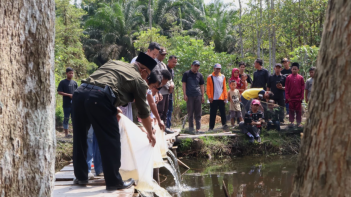To mark this year’s International Day of Forests, RSPO and Friends of Europe co-hosted a debate, ‘Deforestation: A Sustainable Dilemma’, attended by over 100 people in Brussels on 21 March.
Despite huge improvements made in the last decade, the production of palm oil continues to drive tropical deforestation. More than ever, strong governance and effective jurisdictional approaches are needed in producing countries. Meanwhile, downstream governments need to complement this effort. The Amsterdam Declaration and the recent draft resolution of the European Parliament provide a welcome political signal that European governments are recognising their responsibility to address tropical deforestation by increasing demand for certified sustainable palm oil.
The European Parliament goes further in calling for binding rules and a single mandatory certification scheme for Europe based on minimum sustainability criteria.
During the debate, MEP Benedek Javor called on the European Commission to quickly establish a EU Deforestation Action Plan addressing deforestation across all agricultural commodities as a matter of urgency.
Sebastien Risso of Greenpeace Belgium hopes that the EU will become a “deforestation free economy” and agreed with the call for laws and regulations to supplement existing voluntary commitments and certification schemes, which he said, were “insufficient to deal with the urgency of the situation”.
However, Nazir Foead the Head of the Indonesia Peatland Restoration Agency, reminded everyone that Indonesia has put a moratorium on any new palm oil plantations and recently issued a number of regulations.
For its part, HSBC has recently upgraded its palm oil policy and Brendan McNamara, Head of Global NGO Engagement confirmed HSBC’s commitment to the RSPO; recognising its important facilitating role in bringing together organisations from all sectors and regions to work through the dilemmas, finding the best and most sustainable solutions.
Ending deforestation goes hand in hand with ending poverty. Palm oil provides a decent livelihood for millions of smallholder farmers and increasing their yields is an important strategy to prevent more deforestation.
Importantly, the governments of Indonesia and Malaysia have now established Indonesian and Malaysian Sustainable Palm Oil standards; major developments which will significantly improve the baseline standards for palm oil production.
Ensuring legality and strengthening governance in producing countries was a point made repeatedly. The EU can draw on its experience of FLEGT and the EU Timber Regulations when considering how best to partner with producing countries and the sector. RSPO NEXT offers a vehicle to implement enhanced sustainability criteria via third party certification. Businesses and NGOs who champion the move towards “zero deforestation” and agreed a methodology for High Carbon Stock measurements must now work to progress those commitments.
Today our priority must be to work on closing the gap between commitments and actions, to deliver on what has been signed-up for and to ensure the consistent implementation of the criteria and policies adopted so far.
Danielle Morley
RSPO Outreach & Engagement Director, Europe
Keep reading

Rowo Ombo: From Neglected Swamp to a Symbol of Hope and Conservation in Jambi, Indonesia

Save the Date: The 22nd General Assembly (GA22) of RSPO Members

Access into prisma

10 Years of RSPO in China: Driving Palm Oil Transformation Towards Sustainability

Updated Trace Function in prisma

Call for Expression of Interest: Independent Investigation of a Complaint

Latin American Smallholders, Key Global Brands Gather in Peruvian Amazon to Advance Sustainable Palm Oil

RSPO Forum for Members and Certification Bodies 2025: Strengthening Capacities and Building Bridges with RSPO Members




